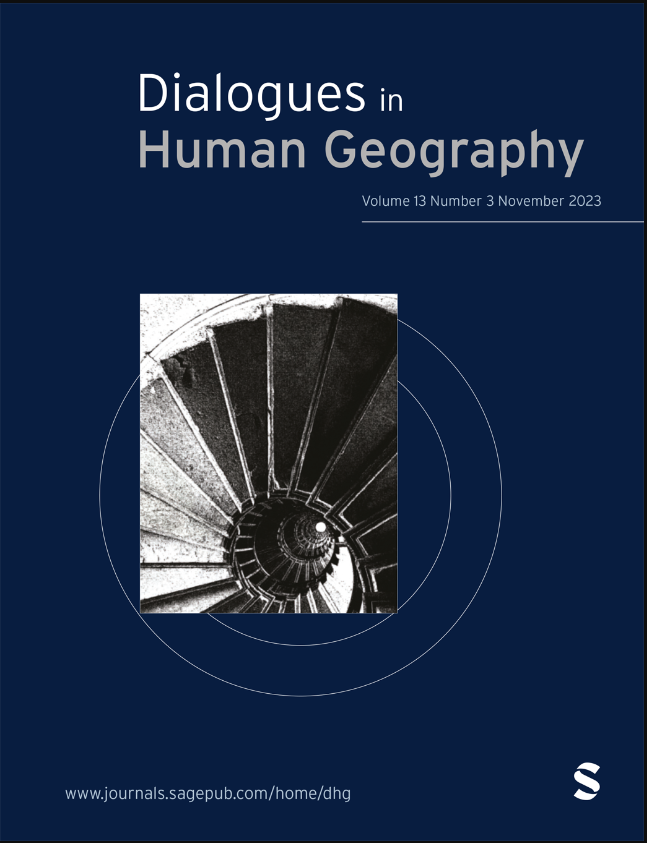社会再生产的基础设施:学校、日常城市生活和教育的建筑环境
IF 8.2
1区 社会学
Q1 GEOGRAPHY
引用次数: 3
摘要
结合社会再生产和基础设施方面的文献,本文展示了如何将教育理解为社会再生产的基础设施,使学者能够评估不断变化的教育景观对居民城市生活其他方面的影响方式。本文从芝加哥学校的经验背景出发,论证了种族主义如何体现了对社会生殖基础设施的剥夺以及随之而来的城市生活的转变。在此过程中,本文认为,将教育理论化作为社会再生产的基础设施,可以更有力地理论化社会再生产与建筑环境之间的关系,以及社会再生产的日常暂时性。以这种方式将教育景观理论化有助于围绕社会再生产理论的核心矛盾进行更清晰的思考:社会再生产场所日益成为资本积累的关键空间,同时也成为对抗这一过程的重要领域。这个框架允许密切关注资本的社会再生产需求和社区的社会再生产需求之间的摩擦如何在芝加哥的城市基础设施中发挥作用。本文章由计算机程序翻译,如有差异,请以英文原文为准。
Infrastructures of social reproduction: Schools, everyday urban life, and the built environment of education
Drawing together the literature on social reproduction and infrastructure, this paper demonstrates how understanding education as an infrastructure of social reproduction enables scholars to evaluate the ways in which changing education landscapes affect other aspects of urban life for residents. Building from the empirical context of Chicago's schools, this paper demonstrates how racism characterizes the dispossession of social reproductive infrastructures and attendant transformations of urban life. In doing so, this article argues that theorizing education as an infrastructure of social reproduction allows for a more robust theorization of the relationship between social reproduction and the built environment as well as the everyday temporality of social reproduction. Theorizing education landscapes in this way facilitates sharper thinking around a contradiction at the heart of social reproduction theory: that social reproductive sites are increasingly key spaces of capital accumulation while simultaneously serving as important terrains to fight that process. This framework allows for close attention to how the frictions between the social reproductive needs of capital and the social reproductive needs of communities play out within urban infrastructures in Chicago.
求助全文
通过发布文献求助,成功后即可免费获取论文全文。
去求助
来源期刊

Dialogues in Human Geography
GEOGRAPHY-
CiteScore
8.00
自引率
4.00%
发文量
86
期刊介绍:
Dialogues in Human Geography aims to foster open and critical debate on the philosophical, methodological, and pedagogical underpinnings of geographic thought and practice. The journal publishes articles, accompanied by responses, that critique current thinking and practice while charting future directions for geographic thought, empirical research, and pedagogy. Dialogues is theoretically oriented, forward-looking, and seeks to publish original and innovative work that expands the boundaries of geographical theory, practice, and pedagogy through a unique format of open peer commentary. This format encourages engaged dialogue. The journal's scope encompasses the broader agenda of human geography within the context of social sciences, humanities, and environmental sciences, as well as specific ideas, debates, and practices within disciplinary subfields. It is relevant and useful to those interested in all aspects of the discipline.
 求助内容:
求助内容: 应助结果提醒方式:
应助结果提醒方式:


